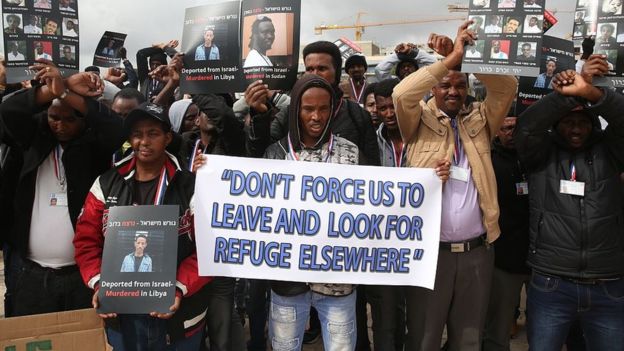The great philosopher Andre 3000 once wore a jumpsuit that said, “Across cultures, darker people suffer most. Why?” Such a simple yet poignant question, and one we must grapple with in contemporary society. Mass racial violence is not new to Black people in the U.S., and as draining as these experiences can be, the threat of anti-blackness does not exist in a vacuum from the rest of the world. Globally, the current political climate and reemergence of nationalism have dire consequences for people who experience Blackness outside the United States. Here are a couple key issues and practices you should know about with significant impact on the wellbeing of Black people and Black culture:
Restrictive Immigration Policy
Lawmakers in the United Kingdom (UK) recently updated their immigration policy, a key reason for their upcoming departure from the European Union (EU). Previously, refugees, EU nationals, and immigrants in the UK benefited from the freedom of movement and a higher ability to find work and remain in the UK. Under new revisions to immigration policy that would take place after Brexit, the potential requirements include a minimum salary threshold and an emphasis on skills-based immigration that could have a large effect on Black people living in the UK, many of whom work in lower-skilled industries that do not meet the minimum salary threshold. Some may be able to receive residency through a settled status. Otherwise, Black migrants without citizenship may have to emigrate to another country, effectively uprooting their lives and contributions to England, Wales, Scotland, and Northern Ireland.
Ethnic Cleansing
Coined in the 1990s after a conflict between ethnic groups in former Yugoslavia, ethnic cleansing is the political and historical practice of one ethnic group removing another ethnic group within a certain geographic area, often through forcible, violent means. Shockingly, ethnic cleansing is not a crime under international law, and recently, more countries are engaging in the practice, citing a desire to restore the ethnocentric identity of their country. In 2018, Prime Minister Benjamin Netanyanhu and the Israeli government ordered the deportation of thousands of African migrants from the country, referring to African asylum seekers from Sudan and Eritrea as “infiltrators” -making a commitment to return South Tel Aviv to Israel and restore Jewish character. Migrants that fail to leave by April 2019 risk possible incarceration up to two months. Coverage of deportations has been sparse the last four months, however, there is reason to believe tensions remain high between African refugees and the Israeli government. Similar actions took place nearly four years ago in the Dominican Republic through a constitutional amendment that retroactively forced the removal of approximately 250,000 Black Dominicans of Haitians descent, regardless of previous citizenship status. Beyond the economic and social ramifications that come with forced deportation, the practice of ethnic cleansing is generally understood to be a denial of humanity faced by ethnic groups that can ultimately lead to genocide.
While each of these practices exemplifies restrictive practices of government policy, nationalism rooted in ethnocentric beliefs is a form of racism incurred by Black people, globally. These instances of anti-Blackness are but a few examples from around the world. While far from our everyday reality, these issues have severe implications for the preservation of Black culture and the safety of Black people everywhere. It took years for me to appreciate the beauty of Blackness and its ability to permeate and influence mainstream culture. If we are to liberate ourselves from the emotional, psychological, and physical impact of anti-Blackness, we must become more informed of the challenges Black people face at home and in our backyard. Love your Black skin, but be leery ‘bout your place in the world.
Blavitize your inbox! Join our daily newsletter for more fresh stories, perspectives, and breaking news.
